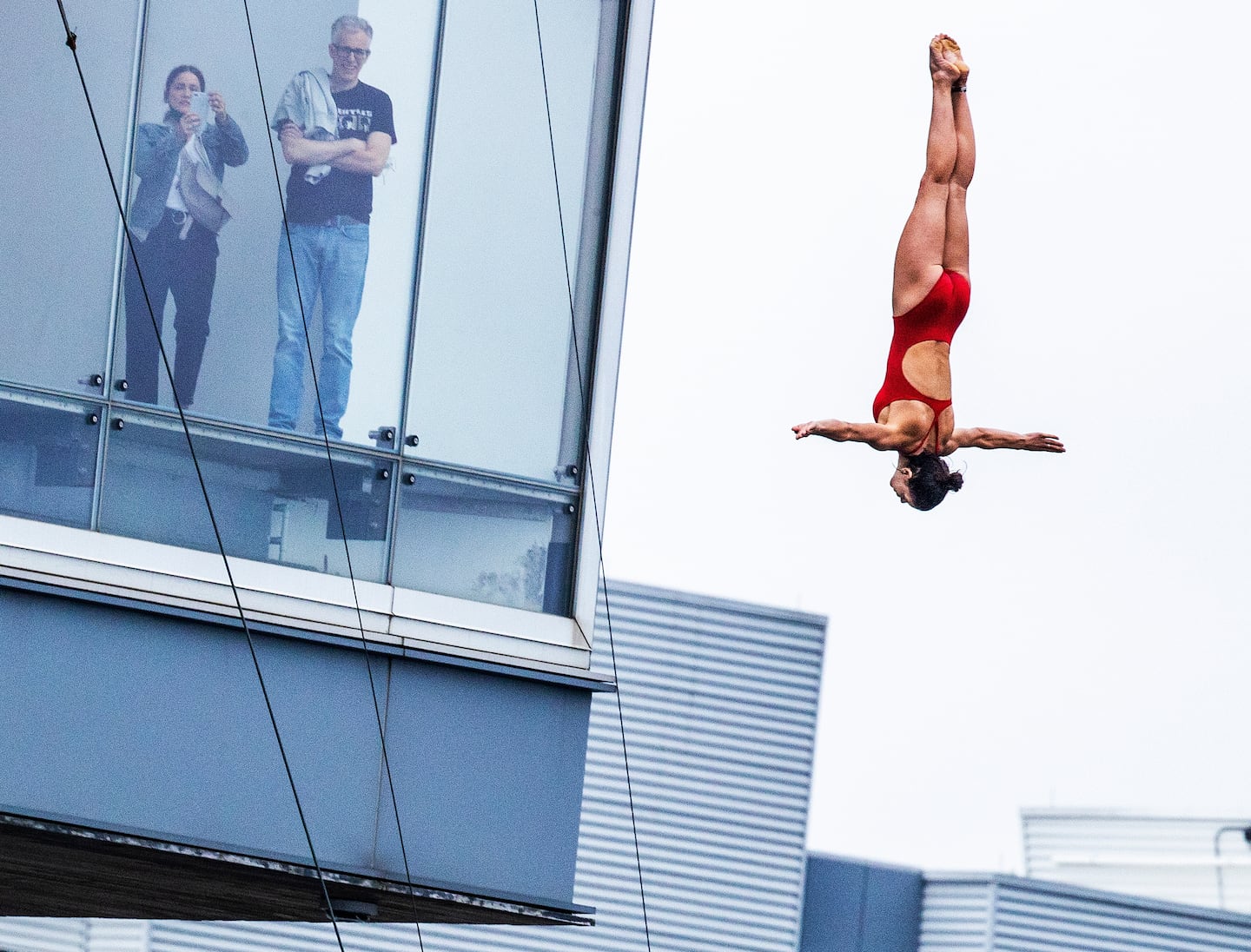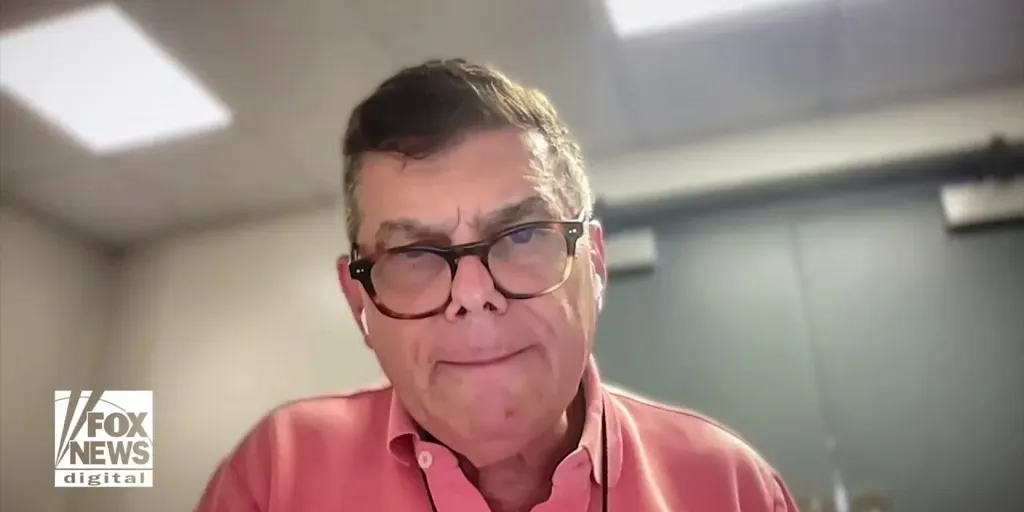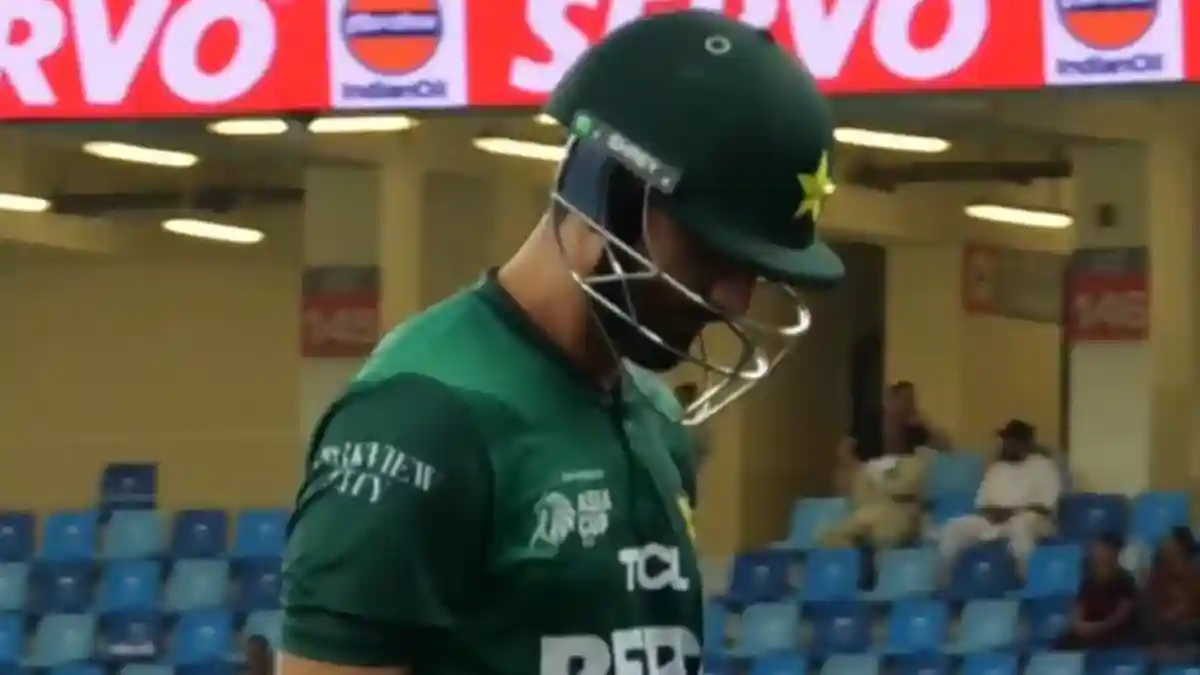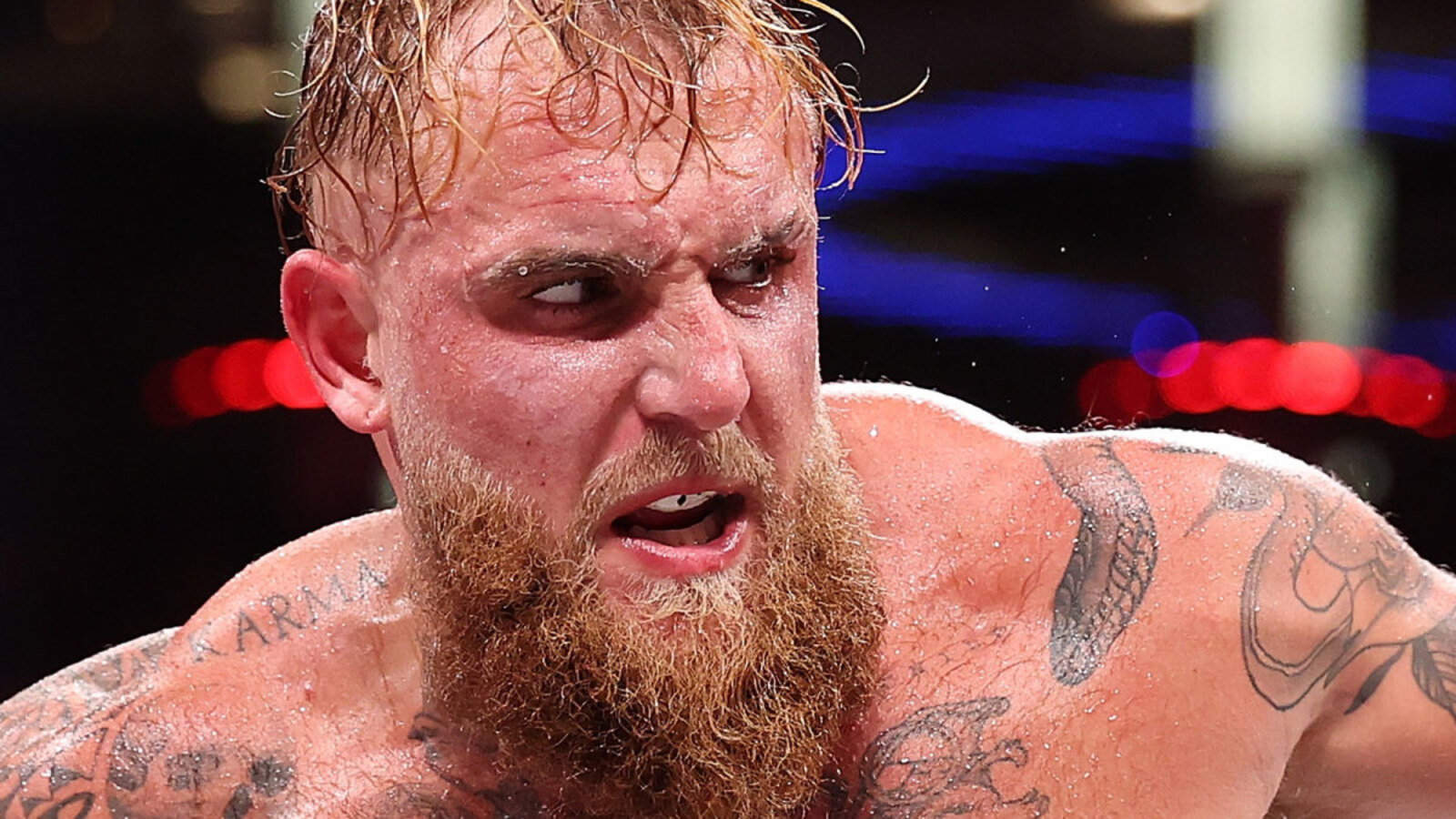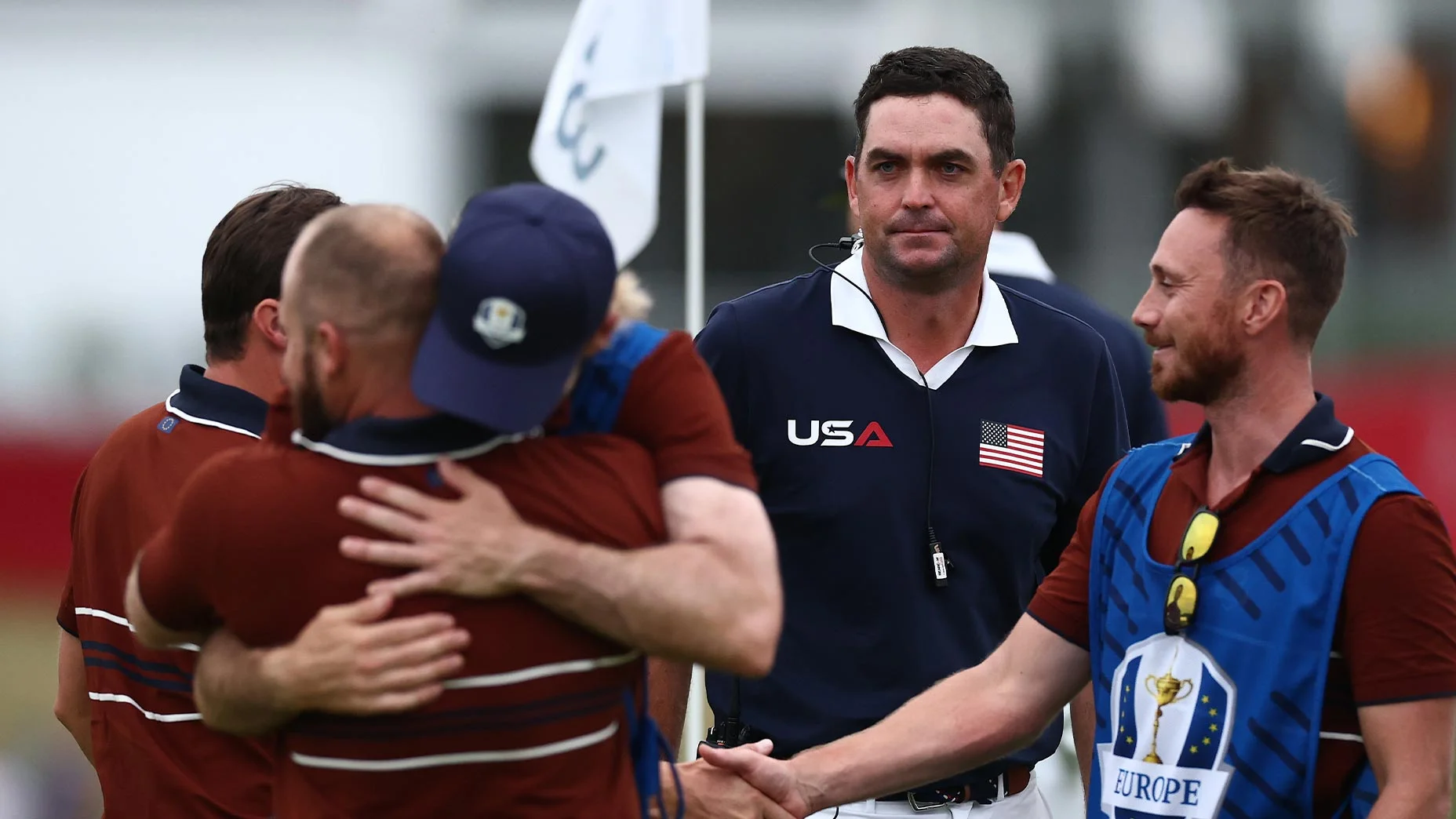
FARMINGDALE. N.Y. — It ain’t over ’til it’s over, but, goodness…
With just 12 singles matches left in this 45th Ryder Cup, Europe has opened up a stunning 7-point lead on the Americans and seems destined to become the first road team to win the title in 13 years — a feat that Rory McIlroy has said would be “up there with the biggest achievements in the game.” How have the Americans found themselves in this unthinkable predicament? Let the second-guessing and armchair-captaining begin! Here are 9 reasons — beyond just “Europe has been better!” — that might explain why the U.S. has taken it on the chin at Bethpage Black.
1. TOO-GETTABLE COURSE SETUP
Bethpage Black, which normally breathes fires, was barely recognizable this week. Believing a defanged Black course favored his players, U.S. captain Keegan Bradley widened the fairways and buzzed the rough, leaving Bethpage’s mere-mortal weekend warriors wondering, “Hey, why don’t they set up the course like this for us?!” A forgiving setup got even more gettable when midweek storms made the flat-ish greens slow and marshmallow soft, which was not at all what Bradley wanted. He said he was hoping for green speeds more in line with what his players face on the PGA Tour. “I’ve never seen Bethpage greens play this soft ever,” he said Saturday evening. “Even when we’ve played here and it’s rained, this is something that I’ve never seen. Chip shots are spinning backwards.”
U.S. captains have always favored less rough-choked setups (at least in the area flanking the driving zones), the idea being that their players — who historically have been longer than the Euros — can overpower that style of setup. In other words, in a birdie boat race, the Yanks like their chances. Trouble is, when it comes to distance, the Europeans have caught up. Heading into the matches, Data Golf projected the U.S. to have a power edge of only 0.4 yards per drive. A rounding error. The U.S. also has the shortest hitter on either side in Russell Henley, and he played twice in foursomes. “He’s too short to play foursomes,” Sam Torrance barked on the Sky Sports telecast. Torrance may have been right; Henley went 0-2 in the format.
“I think it’s quite difficult these days to set up courses to favor one side,” European captain Luke Donald said Saturday evening. “Look at statistically 1 through 12, there’s never a big margin between the two teams.”
Maybe the U.S., given Americans recent success in the majors, needs to pull a 180 in its thinking and set up home games like majors. Tip out the tees; grow the rough; and get the greens cooking. Full Oakmont. If the U.S. players’ games, as many contend, are more complete from tee to green, a tougher setup would seem to benefit them more than an easier one.
“I think we sort of look at the analytical data and how our players perform at their best and we set the course up accordingly,” Bradley said earlier this week, stopping short of articulating what exactly the analytics said. A source told GOLF.com that European vice-captain Edoardo Molinari, who oversees the European team’s analytics, also felt bullish about the Black course setup in the lead-up to the event, contending its kinder, gentler attributes would benefit the Euros as much, if not, more than their opponents.
2. EUROPE WAS (ONCE AGAIN) UBER-PREPARED
A couple of weeks ago, the European team descended on Bethpage to study the finer points of the course. They played 27 holes over two days and learned where to be aggressive (and cautious), and how to read the greens’ subtle breaks. Donald provided his troops with a course-strategy guide that, he said, included “some of the demands and some of the things that have proven to be successful in past tournaments here,” adding, “We saw some stats about Bethpage where putting inside 6 feet had a little bit more relevance than most weeks.” The Euros have been deadly from that range this week — and just about every other range, too. Bradley called their putting “historically” good.
3. QUESTIONABLE U.S. PAIRINGS
Whatever happens Sunday, Bradley’s insistence on partnering Harris English and Collin Morikawa not once but twice this week is a decision that will tarnish his captaincy. According to the quant whizzes at Data Golf, English and Morikawa — stop us if you’ve heard this one before — were, mathematically, the least defensible pairing of the 132 possible permutations on the U.S. side.
Analytics, schmanalytics, you say? Fair enough. But when the duo was throttled 5 and 4 by Rory McIlroy and Tommy Fleetwood in Friday foursomes, Bradley made the call to trot them back out in the same format on Saturday. Their opponents: yep, McIlroy and Fleetwood again. The result? Another loss, 3 and 2, that could have been uglier if not for two lates birdies from the Americans on 13 and 14. Final birdie count over two matches: 12 for McIlroy and Fleetwood vs. just four for English and Morikawa.
4. RELUCTANCE TO PIVOT
When Bradley was asked Friday evening why he was sending English and Morikawa back out together on Saturday, he was coy in his reasoning. “We have a plan of what we’re going to do,” he said. “They beat us today, but you know, we’re really comfortable with our plan. We’re really comfortable with those two players.” He added, “We’re not going to panic and make those sort of mistakes. We’re going to stick to what we know.”
There’s a difference between panicking and pivoting, and given the discouraging outcome of the first day, which ended with the Euros leading by three, Bradley should have been willing to adjust his strategy, regardless of what the data said. Captains ought to have a short lease with out-of-form players — i.e., Morikawa, Henley — but Bradley seemed some committed to his plan that he’d follow it off a cliff.
Bradley also limited Ben Griffin to only one team match. That’s on acceptable tactic when you have a quorum of players who are carrying your team, but that wasn’t the case this week. For the sake of finding a spark, Bradley should have given Griffin — a two-time Tour winner this year — a second look. “I hope he’s pissed off; he should be,” Bradley said. “I would be pissed. I sat a whole day Saturday in Gleneagles. It was one of the lowest moments of my career. Along with Phil [Mickelson], we sat. I hope [Griffin] comes out tomorrow ready to prove me wrong and ready to go out and win his point.”
5. THE KEEGAN QUESTION
Bradley fully embraced his captaining duties, which isn’t say he also didn’t think about what it would have been like to suit up and play, a privilege he could have enjoyed had he used one of his six captain’s picks on himself. “I catch myself every now and then looking down the fairway, seeing the guys walk down the fairway and think how badly I’d like to do that, and how badly I’d want to be in the group with Scottie Scheffler and seeing him play and being his teammate,” Bradley said earlier this week. “In the back of my mind, I’m always thinking, I could have been out there.”
He’s not the only one thinking that — so are we! Would Bradley have been more effective this week than, say, captain’s pick Harris English, who is 0-2 and has lost 3.33 strokes to the field? Quite possibly. Bradley is a supreme ballstriker, who ranked 9th in SG: Tee to Green on Tour this season, which is a deeply valuable asset in foursomes play. He’s also an emotional player who feeds off galleries. (Oh, and you might have heard, he played the Black course more times than he can count during his college years at St. John’s.) Hard not to believe K.B. wouldn’t have had a positive impact with clubs in his hands this week.
6. UNDERPERFORMING CAPTAIN’S PICKS
Second-guessing captain’s picks is admittedly a fraught exercise, because who’s to say whether, say, Chris Goterrup or Mav McNealy would have performed any better than any of Bradley’s actual picks? We’ll never now. Still, Bradley’s wildcards have had a tough week, thus far accumulating a combined record of 4-9-2. Here’s the breakdown:
Cameron Young: 2-1-0
Patrick Cantlay: 1-2-1
Sam Burns: 0-1-1
Justin Thomas: 1-2-0
Ben Griffin: 0-1-0
Collin Morikawa: 0-2-0
The obvious standout of the group has been the U.S. team’s overall MVP: Cameron Young, who has gained a whopping 4.28 strokes on the field this week, according to Data Golf. (Next-best on the U.S. side is Bryson DeChambeau at +1.93.)
7. SPEAKING OF CAMERON YOUNG…
In retrospect, Bradley surely would have benefited from assigning Young — who had finished T11 or better in his last five starts before the Ryder Cup and turned himself into one of the game’s best putters — to one of the Friday-morning foursomes pairings. Not only is Young in form but he’s popular ’round these parts, having grown up in the New York City area, just north of here in Westchester County, and won a New York State Open on the Black course. The U.S. lost the opening session 3-1, and it’s hard not to think with Young on the field, they might not have escaped with a split.
8. SCOTTIE SURPRISE
Scottie Scheffler is the undisputed world’s best stroke player, but the same cannot be said of his match-play game. After an 0-4 start this week, he’s now 2-6-3 lifetime in the Ryder Cup. As my colleague James Colgan noted, during a Friday stretch Scheffler went 18 consecutive holes without a birdie. On a course this soft, that’s like Steph Curry missing 18 straight free throws. Hard to fathom.
In fairness, Scheffler didn’t even play all that badly this week; he just didn’t get much from his partners, namely Russell Henley with whom Scheffler partnered with twice. After their Saturday foursomes loss to Bob MacIntyre and Viktor Hovland, Henley said, “I really just kind of rode Scottie. He’s played so well today. He made everything.”
Scheffler, to his credit, seemed to take his lumps in stride. “It would have been easy for guys to get pissed and feel bad for themselves and kind of mope around,” Bradley said. “Not a single person did that, and Scottie is at the top of that list.”
9. THE BONDS THAT TIE
As Justin Rose and Tommy Fleetwood were celebrating their 3-and-2 Saturday fourball win over Scottie Scheffler and Bryson DeChambeau, Rose grabbed the back of Fleetwood’s head and pulled Fleetwood’s head toward his own so their foreheads were pressed together. It was small moment but also the kind of tender display of kinship and respect that you would rarely, if ever, see between two U.S. players. The Americans are wired differently. They just are. It’s not that they don’t care for one another or don’t burn to win. They do. But the European glue is stickier; you can see it in nearly every match.
And now the Europeans are on the verge of a blowout win. As Donald processed his team’s seven-point lead by the 18th green Saturday evening, he said, “I didn’t really imagine this.”
No one did.
